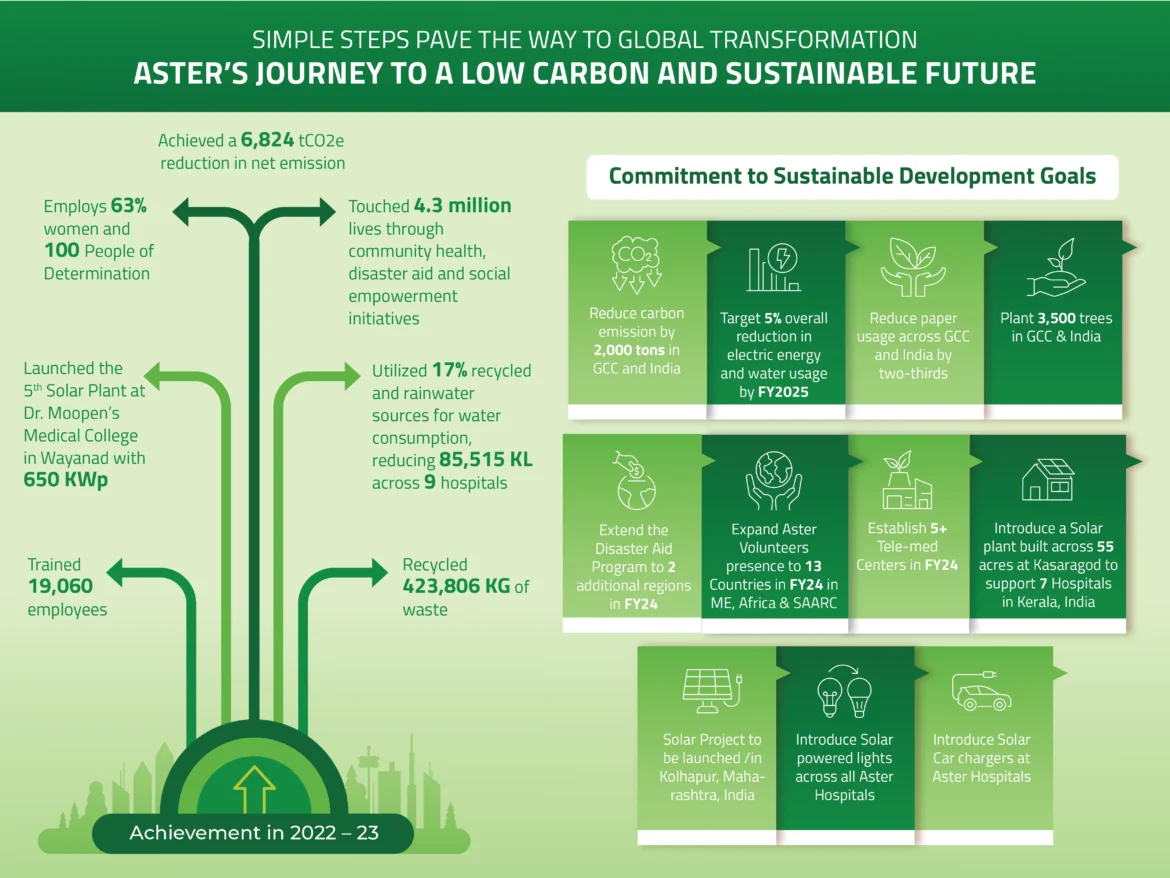Aster DM Healthcare has released its annual ESG Report, which details its achievements and upcoming commitments. This includes detailing its strategically integrated renewable energy sources, water utilisation optimisation, waste management and sustainable transport management practices.
The company shared details on its integration of renewable energy sources, including 3,679,200 KWh solar energy, 2,300,000 KWh wind energy, and 3,569,298 KWh hydro energy, contributing to a reduction of 6,824 tCO2e, despite what it called “significant operational expansion.”
Further, it shared that its decarbonisation initiatives continued across five hospitals, with a new solar plant of 650 kWp commissioned at Aster Wayanad Specialty Hospital – poised to reduce 460 tCO2e per annum.
On water conservation, it shared a 17 per cent reduction in consumption across operations, with 85,515 KL water savings achieved through practices such as recycling and rainwater harvesting.
Meanwhile, its responsible waste management efforts have resulted in recycling 423,806 KG of waste.
It also shared details of its corporate social initiatives, including the Aster Volunteers program, which it said has impacted over four million lives through healthcare outreach to the underprivileged in the past year.
Other initiatives include planting 2,000+ saplings, aiding 10,000 beneficiaries through programs like Aid for Assam and building 250 homes for victims of the Kerala Floods.
The company also launched its three-year plan, which includes a targeted reduction of 2,000 tons of carbon emissions in GCC and India.
It also aims to reduce paper usage by two-thirds across the GCC and India.
Further, it noted the goal of planting 3,500 trees in these regions.
Aster also plans to build a large-scale solar plant spread across 55 acres in Kasargod, which would power seven hospitals in Kerala, India.
Looking ahead, by 2025, the organisation plans to reduce overall electricity consumption by 5 per cent throughout GCC and India, alongside a 5 per cent overall reduction in water usage across these regions by FY2025.
Measures including solar-powered lights across Aster Hospitals and solar car charging stations are set to be introduced.
The Aid Program will expand disaster support to two additional regions in FY24, it noted, and plans also include establishing five Tele-Med Centres in the same fiscal year.
Aster Volunteers Mobile Medical Services will see an expansion from 32 to 41 units in FY24, covering diverse regions.
Volunteer engagement targets an 18 per cent increase in registered Aster Volunteers in FY24, with external partnerships key in achieving these objectives.




